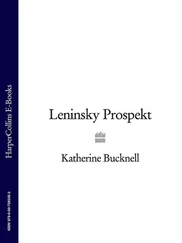Hilary nodded, suddenly speechless, self-conscious.
And Roland leaped in, in a schoolmasterish voice, summarising the merits and demerits of Paul. ‘He’s clever, of course. Very good company. But lazy, really – unless he’s outgrown that. Quite a high opinion of himself – presumed he’d go far, I reckon. And he could do. Impressive grasp of detail, very strong sense of style. Gifted with languages. Even as an undergraduate, he had several ancient and modern ones.’
‘Gifted with languages,’ Hilary echoed, dry-mouthed.
Gwen knew just what Hilary was thinking – that Paul had lied about being lousy at Italian.
‘Hardly a historian, and certainly not a philosopher,’ Roland went on, unstoppable. ‘Not that I ever taught him philosophy. Could have done anything he set his mind to, really, but he used to tell me that he hated talking about definitions and logic. Called them puzzles. Disdained Aristotle, Plato, metaphysics, ethics – plain old good and evil. What happens happens is what he would say. Capable of memorising anything he read, but didn’t want to think too hard. Not joined-up thinking. Text-based history suited him fine, but he wasn’t much with analysing a problem. Useless with an economic model; he’d tell you what every pottery shard looked like, who made it, where it came from, based on certain visual qualities, but never get on to caring or understanding how the pottery trade might have worked in a pre-capitalist economy. Equally, the coins to him were lovely bright objects to collect and admire. He has the mind of a connoisseur really, an aesthete. And for ever stuck in the one-damn-thing-after-another school of thought. What, honestly, is the point of that? Life as a series of accidents? I take it, Hilary, that has somehow included you? Some – accident?’
‘An accident,’ Hilary breathed. She gave a tight chuckle, feeling that Roland was scolding her, taking her to task for having failed to see what she was dealing with in Paul. ‘You seem to have the nub of it.’
Gwen thought, I’ve never seen Roland being so pompous, so cold, so unbelievably condescending.
Lawrence was diligently working his way through his plateful, head down, shovelling it in. ‘Maybe he was quite happy to achieve some hold on Hilary,’ he said with his mouth full, chewing. ‘Maybe he did do it all deliberately. C’mon, Hilary, stick up for yourself. You mustn’t let Roland be hard on you. Maybe Paul was after your – inheritance. Your candelabrum.’
Once again, Roland went red, realising he’d crossed some line. ‘Do forgive me. I have no intention of being hard on anyone. And I don’t think you should let Paul Mercy get the better of you. He shouldn’t be allowed to – hurt your feelings. Or anyone’s feelings for that matter.’
Gwen caught Lawrence’s eye across the table as she poured sparkling water and he poured more wine. She was thinking that Roland, in some ghastly, awkward way, was trying to cheer Hilary up. She felt certain that Lawrence was thinking the same. She gazed at Lawrence, half smiling, considering that wine on top of fourteen years of marriage dissolved any barriers between their minds, that he knew even now what she was thinking as she thought it: that all this bluster was Roland’s idea of gallantry, cutting Paul off at the knees, reducing him to a slip of an undergraduate figure, a schoolboy even, truant, with a lost homework assignment.
What is it with these dons? She wondered if Roland’s efforts would succeed, looking at Hilary, looking at Roland. Surely Lawrence would never stoop so low, belittling a rival? Or were all men like that?
And now she heard Hilary starting in on how ridiculous she must have seemed, throwing herself at Paul.
‘Here,’ Hilary cried out, flushed with wine. ‘Have my heart.’ And she made a gesture, like throwing something down on the floor. ‘Stomp on it for me.’
Oh, don’t tell these stories against yourself, Gwen thought. She felt, suddenly, that the evening was destroying Hilary’s morale. It’s the tone of voice – abject, self-abasing. Come on, Hil, Gwen was thinking. You are not such a loser as all that. And why, why , tell Roland so much about the broken engagement. I mean not with such gusto. It’s my fault, Gwen considered. She warned me, Not yet.
‘Maybe Paul was somehow intrigued by you – authentically,’ Lawrence proposed. ‘Maybe he felt comfortable knowing nothing need happen between you. There are plenty of men like that, gay and straight.’
‘And are there plenty of women like that?’ asked Hilary, open-eyed.
‘Plenty of women?’ Lawrence echoed. ‘For whom nothing need happen?’ He felt strangely pinned down by her, targeted, and he found himself stuttering, ‘No,’ then, ‘I don’t know,’ as it came over him that he had always presumed that women were not comfortable unless something did happen. Not a wise presumption, he advised himself. Yet he felt certain that it was true for this woman: something would need to happen for Hilary to feel comfortable. Lawrence felt it distinctly.
Roland turned away just then from Hilary. Gwen felt his attention shift with a snap, like the mainsail of a boat going about in a stiff breeze. The weight of the evening fell towards her heavily, life jackets, picnic bags sliding down across the cockpit. He began to ask her about her upcoming exhibition.
‘I’ve banned my dealer from my studio,’ she announced. ‘It’s not until after Christmas, and he’s already sold a piece. Had it shipped to Aspen to some movie producer. That was sort of – withering.’ She hunched her shoulders up around her neck like a vulture, curled her fingers together in front of her face, miming avarice. ‘He arrives from New York with this big black portfolio, peers at all the canvases, scavenges little scraps of drawings lying around. There’s a lot of money on offer. The figures are going way up, which starts getting inside my head, right inside my imagination. Once I’m done with the paintings, OK, I’ll want them all out – instantly –’ She waved her hand imperiously. ‘But I work back and forth from one to another and I need them all together until they’re finished. You don’t want someone buying your flat, really, if you’re still living in it. Even though you might need the money. You want to find your new place first, where you’re going to live next.’
‘Same with books,’ Roland murmured as if to himself, chewing, ruminating, so that Gwen had to sit up close to hear him. He swallowed, bent his head towards her, spoke more clearly, his lips near the curve of her cheek. ‘I never tell a colleague, or even a student, something that I’m writing about; it’s only natural for them to try to use it before I can publish it. Anything we say aloud – it’s up for grabs, isn’t it? Anything at all. But on the other hand, we writers don’t really have to part with our books. Not like paintings. Everyone can have a copy of a book. More that the publisher worries nobody will want one.’
Gwen laughed at this. ‘My dealer’s pretty commercial,’ she confided. ‘American. You’d think I’d want big exhibitions and the high prices. But I feel a little pushed. A little packaged. Who are these clamouring millionaires? I need to paint without worrying about what sells; otherwise, I get on this roll that isn’t my own. I hit one thing that someone really goes for, and I know I could do it again, and there’s a lot of adrenalin there, and maybe even a temptation – a kind of challenge to please some supposed audience. But then, what would I really be doing? Are they hot for just whatever it is I’m producing? Or am I producing something they’re hot for?’
She whirled her fork through the air. ‘Sometimes I think I might have to run away from it, back to the country. So I don’t become part of something dreamed up by other people. But right now, the work’s OK. There’s a lot happening fast. More coming. I can’t stop. You’d have to pry my brushes out of my hands.’ She gripped the fork hard, making a fist.
Читать дальше












